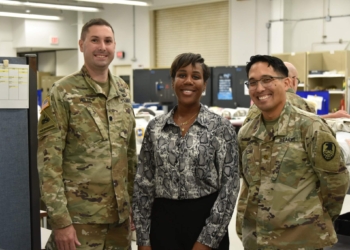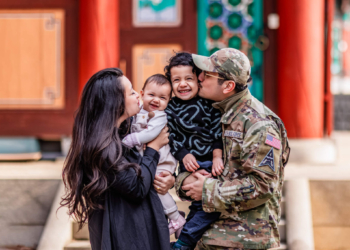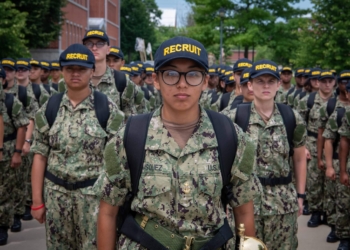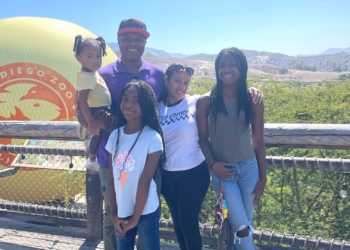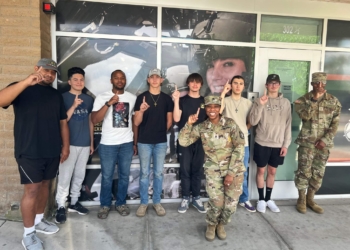A Military Science Instructor building future leaders, Sgt. 1st Class Jeramy Neusmith embodies the attributes and competencies he teaches cadets.
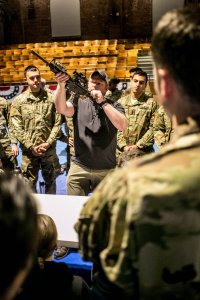
Neusmith has deployed 16 times since 2001, spending most of his career with the 75th Ranger Regiment and a few years with the 173rd Airborne Brigade in Vincenza, Italy.
Now, at Georgetown University’s Hoya’s Army ROTC Battalion in D.C., a consortium comprised of five academic institutions, he instructs students from Georgetown University, American University, The George Washington University, The Catholic University and The Institute of World Politics.
The syllabus, consisting of academic and field training, focuses on developing students’ team building capabilities and leadership. And interwoven within the curriculum are lessons based on 20 years of overseas operations.
“I can give examples and lessons learned, but unfortunately, it’s lecture. [As a result], my goal is for them to go from transactional leaders, to transformational leaders,” Neusmith said. But the greatest impression left with students is that Neusmith models what he teaches.
One such student, Cadet Kathleen Yellin, is majoring in international relations with a minor in German language and culture at American.
“My family raised me to be thoughtful in my actions and consider the long-term implications about the decisions I was making,” Yellin said, explaining why she wanted to serve her country.
Yellin’s interested in how military service contributes to leadership and foreign policy. For her, Neusmith serves as a role model.
“Sgt. 1st Class Neusmith inspires me to keep my interactions with people real, and that people are affected more by action than words. He repeatedly states an effective leader goes into the field and experiences what soldiers experience. This allows a leader to know what needs to happen, while gaining respect from soldiers. This lesson also applies to life, as you can’t be an effective leader and not know what is going on behind the scenes.”
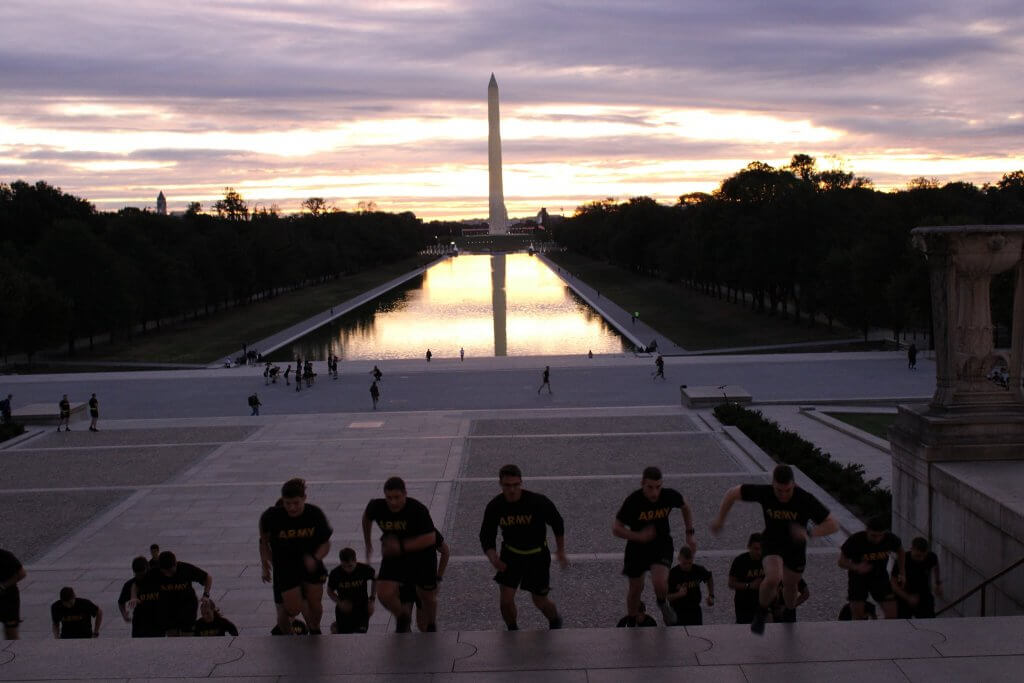
Yellin appreciates Neusmith’s real-world advice. For her, the benefit of having Neusmith as an instructor is that he doesn’t hold back telling the truth about how things actually run in the military world.
“Lesson-plans often offer best-case scenario leader interactions; however, he lets us know things probably won’t go according to plan,” she said.
Cadet Nate Sanders is also a student at American University studying international relations with a focus on national security and foreign policy. Sanders explained though his family currently lives in Connecticut, he spent a portion of his childhood in Tokyo, Japan and Shanghai, China due to his dad’s job. After so much time abroad, he appreciates America and wants to give back by serving in the Infantry.
Sanders says that Neusmith’s impact on him and his peers has been meaningful. For example, deployment stories have influenced students’ ability to internalize the Army’s leadership model taught in the classroom. The lessons that have remained with him relate to those about the Middle East. Neusmith has taught the cadets just how challenging circumstances can get in extremely hostile places.
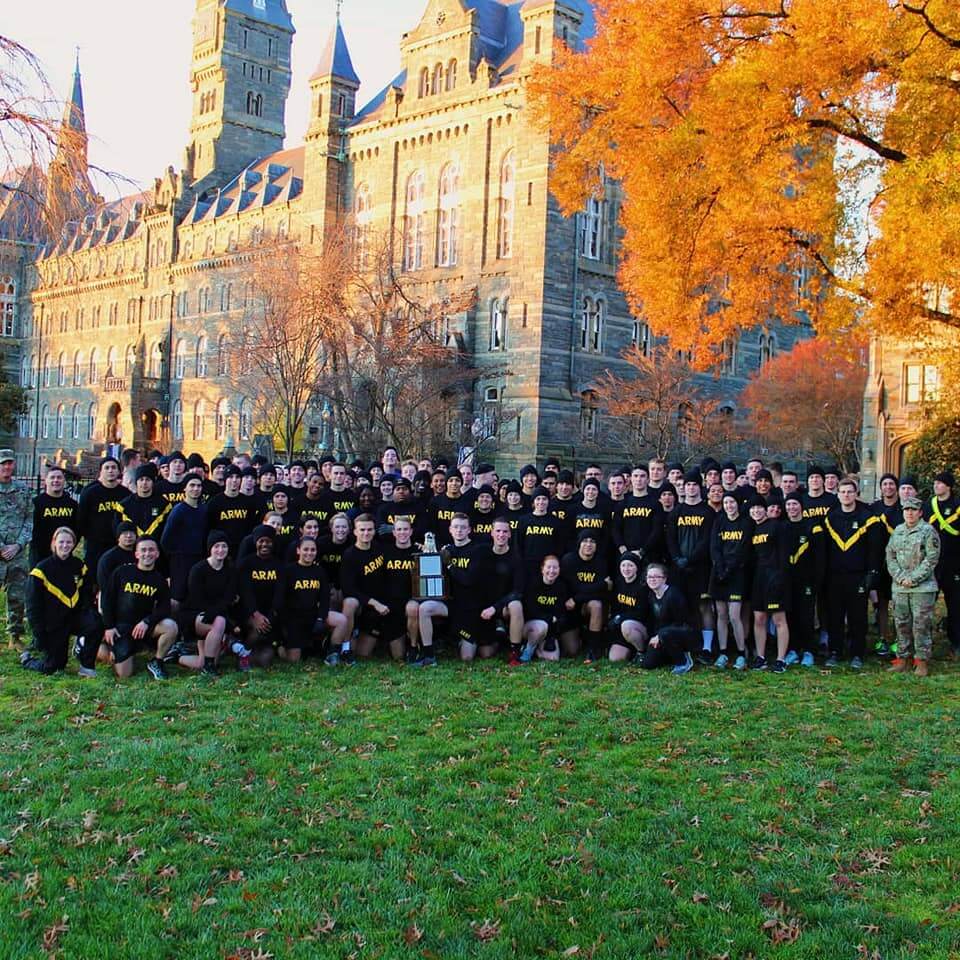
The biggest takeaways are that trust in each member in a platoon is vital, realizing that every soldier responds according to their training and using force in a selective manner.
“Sgt. 1st Class Neusmith explained that as future lieutenants and platoon leaders, it is crucial we built our teams by creating expectations, training diligently with them and having the ability to form close relationships and place trust in each soldier,” Sanders said.
“Hopefully, [the cadets] will remember my words and — even change the Army for the better,” Neusmith said.
One of Neusmith’s priorities is to teach cadets about cultural awareness both from a military and societal standpoint.
“A leader should not only understand the culture of their unit, but people around the world… If we could all step in someone else’s shoes, and see things from their eyes and their problems, we could all be better people and could mitigate a lot of stuff that happens,” he said.
Neusmith praises his cadets in the Hoya Battalion.
“I learn from my students at times. We should all be still willing to learn — even the best generals are open to learning how to be better leaders.”
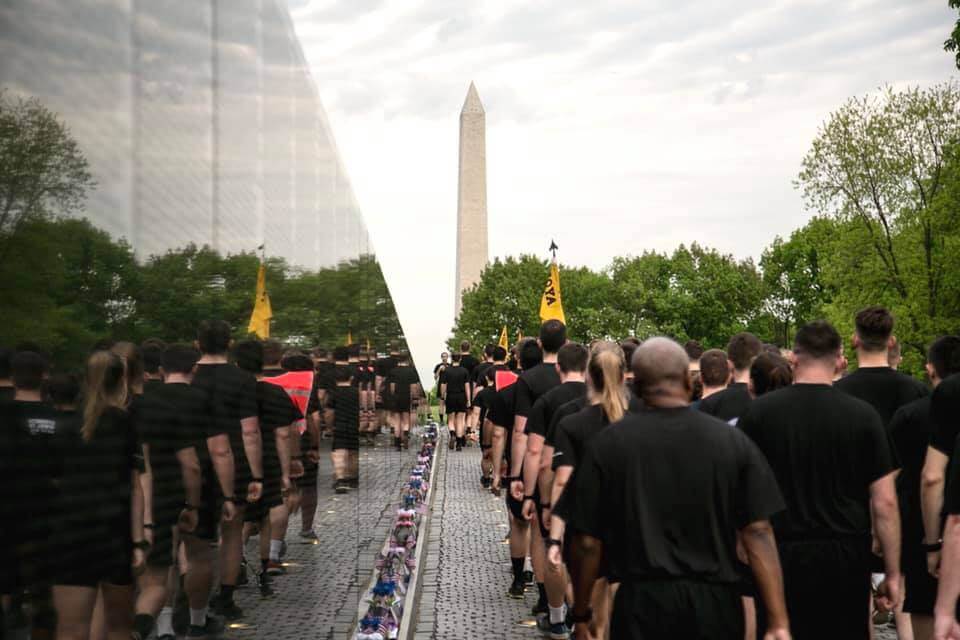
But according to the cadets, Neusmith’s example has already resonated with them as they formulate their future roles in the Army and their communities.
“The most powerful lesson Sgt. 1st Class Neusmith has taught is life is what you make of it and that in order to be a good leader you have to take initiative and make the change you want to see,” Yellin concluded.
Read comments
















